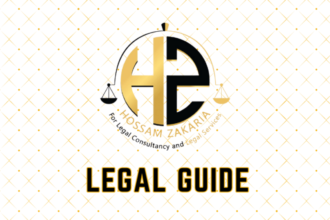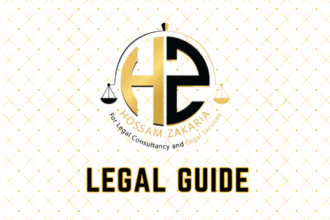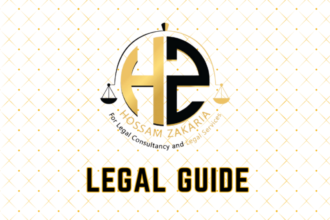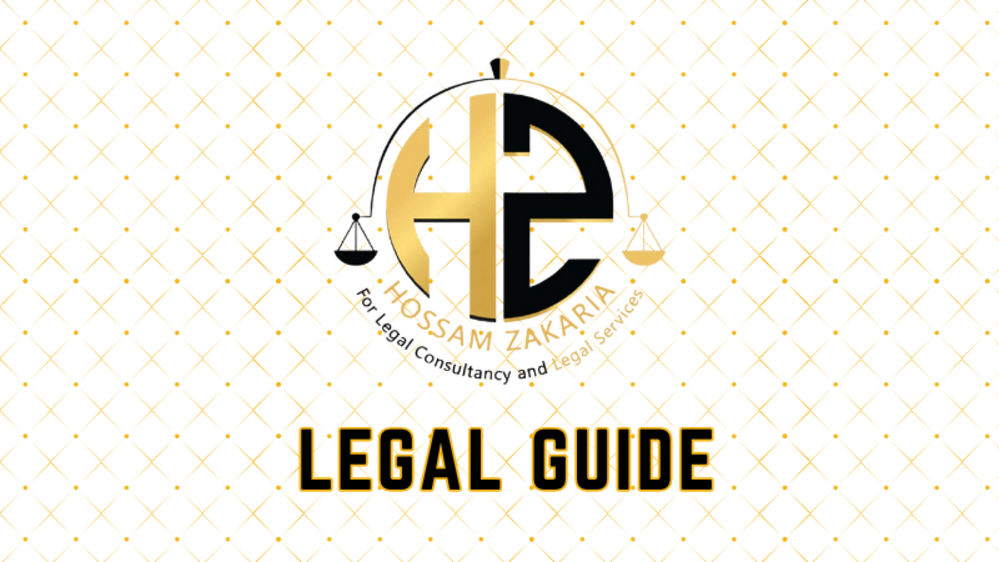Introduction
As regional business operations expand across borders, a sophisticated understanding of arbitration law becomes pivotal for UAE business leaders and legal professionals engaging in the Qatari market. Arbitration is frequently chosen in international contracts due to the need for neutrality, efficiency, and enforceability – factors underscored by Qatar’s recent legal reforms. With Qatar’s economy remaining a major hub for investment and trade, especially among UAE-based enterprises, aligning with the latest arbitration legal framework is essential to manage cross-border risks, ensure enforceability of awards, and foster sustainable business growth. This guide provides expert-level legal analysis and actionable consultancy insights on Qatar’s arbitration law, its significance for UAE operations, and how stakeholders can proactively safeguard their interests under the evolving Qatari legal landscape.
This article reflects the highest standards of legal advisory writing. It is intended to support executives, in-house counsel, HR managers, and practitioners seeking clarity on regulatory obligations, risks, and compliance strategies in Qatar, while referencing official laws and regional best practices. Recent developments—including the adoption of Law No. 2 of 2017 on Arbitration in Civil and Commercial Matters (the “Qatari Arbitration Law”), based on the UNCITRAL Model Law—prompt a critical evaluation of how UAE companies structure dispute resolution clauses, handle enforcement, and ensure continuity in contracting with Qatari counterparts. The insights and recommendations throughout this guide will empower clients to remain compliant and resilient to future legal shifts.
Table of Contents
- Overview of Arbitration Law in Qatar
- Key Provisions of the Qatari Arbitration Law
- Comparative Analysis: Qatari Arbitration Law vs. UAE Arbitration Framework
- Impact on UAE Businesses and Legal Practitioners
- Practical Considerations for Arbitration Agreements
- Case Studies and Hypothetical Examples
- Compliance Challenges and Risk Mitigation Strategies
- Conclusion – Best Practices and Future Outlook
Overview of Arbitration Law in Qatar
Legal Foundation and Recent Developments
Qatar’s legislative landscape for arbitration underwent a significant transformation with the enactment of Law No. 2 of 2017 on Arbitration in Civil and Commercial Matters, aligning Qatari arbitration procedures closely with international best practice via the UNCITRAL Model Law framework. This law replaced the previous provisions found within the Qatari Civil and Commercial Procedures Law (Law No. 13 of 1990), fostering greater confidence in arbitration as a feasible dispute resolution method for both domestic and foreign parties.
The motivation behind this reform was twofold: to modernize Qatar’s legal infrastructure in line with its Vision 2030 and to appeal to international investors by strengthening the enforceability of arbitral awards while ensuring judicial support with non-interference from local courts. These updates benefit regional trading partners, with UAE entities being particularly prominent among them.
Authority: Official Source and Applicability
Law No. 2 of 2017 (the “Qatari Arbitration Law”) draws directly from the UNCITRAL Model Law (as amended in 2006). This law governs any commercial or civil arbitration conducted in Qatar or any arbitration where parties have agreed to its application.
Key Provisions of the Qatari Arbitration Law
Scope and Applicability
The Qatari Arbitration Law is mandatory for all arbitrations either seated in Qatar or where parties have explicitly agreed to its application. The law applies to both Qatari and non-Qatari parties, except where a specific law provides otherwise (such as protecting public order). It covers all stages of the arbitral process—from the drafting of the arbitration agreement through to the recognition and enforcement of awards.
Main Provisions and Procedures
- Arbitration Agreement: Parties must enter an arbitration agreement in writing as a prerequisite (Art. 7).
- Autonomy and Separability: Arbitration clauses are regarded as autonomous, even if the main contract is invalidated.
- Intervention of Courts: The law restricts court intervention strictly to instances stipulated within the law (Arts. 5 & 8), supporting party autonomy.
- Appointment of Arbitrators: Parties are free to determine the number, appointment process, and required qualifications of arbitrators, failing which default provisions apply (Arts. 11–13).
- Conduct of Proceedings: Parties enjoy significant procedural flexibility, subject only to principles of fairness and equality.
- Recognition and Enforcement: Courts must recognize and enforce arbitral awards unless grounds for refusal exist, such as incapacity or public policy violations (Art. 34).
- Challenge and Annulment: Awards may be set aside on narrow grounds, including absence of a valid agreement or procedural violations (Arts. 33–35).
Official Reference
For the full text and authoritative references, see Qatar Law No. 2 of 2017 (available via Qatar’s Ministry of Justice and the Legal Portal of the State of Qatar).
Comparative Analysis: Qatari Arbitration Law vs. UAE Arbitration Framework
Key Differences and Similarities
The UAE has also adopted progressive arbitration laws in recent years, most notably the UAE Federal Law No. 6 of 2018 on Arbitration (the “UAE Arbitration Law”), replacing earlier procedural rules under the Civil Procedure Code. Both legislations are influenced by the UNCITRAL Model Law, but they diverge in certain regulatory and practical aspects, especially concerning procedural autonomy, judicial review, and enforcement.
| Aspect | Qatari Arbitration Law (Law No. 2/2017) | UAE Arbitration Law (Federal Law No. 6/2018) |
|---|---|---|
| Based on UNCITRAL Model Law | Yes | Yes |
| Application | Civil and commercial arbitrations in Qatar | All civil and commercial arbitrations in the UAE |
| Mandatory Written Agreement | Yes, per Art. 7 | Yes, per Art. 7 |
| Scope of Court Intervention | Restricted to prescribed circumstances | Restricted, but UAE courts generally have greater oversight historically |
| Interim Measures | Available and enforceable via courts | Available, with support from UAE courts |
| Confidentiality | Implied, but not explicitly mandated | Explicitly provided (Art. 33) |
| Challenge and Setting Aside | Grounds mirror UNCITRAL Art. 34 | Very similar to Qatari framework |
| Recognition and Enforcement | In line with New York Convention, limited refusal grounds | New York Convention implemented; enforcement through onshore and DIFC/ADGM courts |
| Public Policy Exception | Grounds for refusal of enforcement | Grounds for refusal of enforcement |
For further reference, see UAE Federal Law No. 6/2018 and Qatar Law No. 2/2017, both available via respective Ministry of Justice portals.
Expert Commentary
While the regulatory approach is broadly similar, UAE business leaders must be conscious of certain jurisdictional nuances and procedural preferences when drafting contracts with Qatari entities. For example, confidentiality provisions, interim measure enforcement, and timelines for award recognition may differ, affecting contract structure and risk allocation.
Impact on UAE Businesses and Legal Practitioners
Implications for Cross-Border Contracts
The new legal environment compels UAE-based businesses to revisit dispute resolution strategies in dealings with Qatari partners. Arbitration has evolved from being a secondary option to the preferred method in cross-border agreements, particularly for high-value or complex commercial transactions. The alignment of Qatari and UAE frameworks to UNCITRAL Model Law enhances certainty but does not eliminate the need for specialized drafting and pre-dispute planning.
HR Managers and Employment Disputes
Employment contracts remain a sensitive area. Both Qatari and UAE law stipulate specific rules regarding arbitrability of labor disputes, often restricting arbitration for statutory employment claims. HR managers should ensure their employment agreements comply with both local labor laws and any overarching arbitration restrictions.
Sectoral Considerations
- Construction and Infrastructure: Given the prevalence of mega-projects, stakeholders must ensure arbitration clauses are tailored for sectoral norms and possible multi-tier dispute resolution mechanisms.
- Banking and Finance: Consider regulatory constraints on arbitrability for certain financial disputes and confirm adherence to both countries’ financial regulations.
- Franchising and Distribution: Choice of seat and applicable law, as well as enforcement options, should be negotiated to maximise commercial certainty.
Practical Considerations for Arbitration Agreements
Drafting Robust Arbitration Clauses
- Clear Definition of Seat and Applicable Law: Avoid ambiguity—state ‘Doha, Qatar’ or ‘Abu Dhabi, UAE’ as arbitration seat, and specify procedural rules (e.g., ICC, QICCA, DIAC).
- Institutional vs. Ad Hoc Arbitration: Prefer reputable institutions (QICCA, ICC, LCIA, DIAC) which provide administrative support and enforcement advantages.
- Arbitrator Appointment and Qualifications: Include detailed procedures or qualifications in the agreement to avoid later disputes or court intervention.
- Language and Confidentiality: Specify working language and confidentiality obligations explicitly in the arbitration clause.
- Multi-Tiered Mechanisms: Consider pre-arbitration steps such as mediation or expert determination for complex industry disputes.
Checklist for Contractual Arbitration Clauses
| Key Element | Recommended Approach |
|---|---|
| Seat of Arbitration | State explicitly (e.g., Doha, Qatar) |
| Institution/Rules | Choose recognised forum and document rules (e.g., ICC, QICCA) |
| Scope of Disputes | Broadly or specifically define arbitrable matters |
| Appointment Process | Detail number, process, and qualifications of arbitrators |
| Language | Specify language to be used in proceedings |
| Governing Law | Distinct from the law of the seat if desired |
| Confidentiality | Include explicit obligations if privacy is crucial |
| Pre-Arbitration Steps | Outline deadlines and processes for negotiation/mediation |
Expert Legal Insight
For UAE businesses, “copy-paste” clauses may result in costly delays or unenforceability. Consult legal counsel to adapt model clauses by jurisdiction, sector, and contract value. Consider local nuances: Qatari law’s minimal court intervention can be a double-edged sword, providing finality but less oversight.
Case Studies and Hypothetical Examples
Case Study 1: Enforcing a UAE Arbitral Award in Qatar
Scenario: A UAE logistics firm wins an ICC arbitral award against a Qatari distributor following a failed joint venture. The award is issued and the claimant seeks to enforce it in Qatar.
Legal Analysis: Post-2017, Qatari courts will recognise foreign awards under the New York Convention provided basic procedural protections were granted and public policy was not violated. The Qatari party cannot resist enforcement merely on minor technical complaints; the onus is to prove significant due process violations.
Case Study 2: Ad Hoc Arbitration Dispute
Scenario: Two UAE companies operating jointly in Qatar encounter a dispute over profit distribution; their contract provides only for ad hoc arbitration under Qatari law, but without clear procedural rules or seat.
Lessons: Absence of a defined seat and rules results in disputes over arbitral procedure and appointment, leading to parallel court applications, significant delay, and costs. Resolution: Always specify seat, institution, and rules explicitly to ensure enforceability and streamlined process.
Case Study 3: Construction Sector Dispute with Multi-Tiered Clause
Scenario: A leading UAE contractor undertakes a Qatari infrastructure project. The contract stipulates negotiation, mediation, and then arbitration before QICCA if prior steps fail within a defined period.
Insight: Multi-tiered mechanisms, when clearly drafted with ‘deemed completion’ or ‘cooling off’ periods, are generally upheld under both Qatari and UAE law, offering staged dispute resolution without blocking finality.
Compliance Challenges and Risk Mitigation Strategies
Main Legal Risks
- Non-compliance with Mandatory Provisions: Faulty or ambiguous drafting may result in annulment or unenforceability of arbitral awards in Qatari courts.
- Ignoring Local Judicial Practice: Despite legislative alignment, local court interpretations may diverge, leading to unpredictable outcomes.
- Public Policy Objections: Awards contrary to Qatari law on public order or morality may be refused recognition, especially in construction, employment, and agency/distribution sectors.
- Procedural Deficiency: Overly generic or outdated clauses may invite jurisdictional disputes and expensive satellite litigation.
Enforcement Obstacles and Penalty Comparison Table
| Compliance Lapse | Potential Risk | Penalty/Outcome |
|---|---|---|
| Poorly Drafted Clause | Jurisdictional challenge, lengthy litigation | Non-enforcement or annulment |
| Contrary to Public Policy | Refusal by Qatari courts | Arbitral award refused/unenforceable |
| Failure to Register Award | Administrative delays | Delayed or denied recognition |
| Non-compliance with Procedures | Grounds for annulment | Award set aside, costs incurred |
Compliance Roadmap for UAE Businesses
To ensure maximum legal protection and business certainty, UAE organizations are advised to:
- Audit Existing Contracts: Systematically review all contractual arbitration clauses for compliance with latest Qatari legal requirements.
- Train Contract Managers: Allocate resources for periodic legal updates and training on drafting enforceable arbitration clauses per both UAE and Qatari norms.
- Local Counsel Collaboration: Engage reputable Qatari legal counsel at contract negotiation and post-award enforcement stages.
- Monitor Judicial Trends: Regularly track Qatari court interpretations of arbitration law in partnership with GCC-focused external advisors.
- Documentation Protocol: Maintain high-standard documentation of the arbitral process to minimize challenge risk in enforcement.
Conclusion – Best Practices and Future Outlook
The overhaul of Qatari arbitration law, coupled with progressive updates in the UAE, underscores the region’s ambition to establish itself as a premier arbitration hub. For UAE business leaders and legal practitioners, the era of passive contract replication is over. Instead, sustainable cross-border operations require proactive legal strategy, dynamic risk management, and robust compliance processes tailored to the nuances of each jurisdiction.
Key Takeaways:
- Alignment with the UNCITRAL Model Law has fostered greater predictability, but careful attention to drafting, seat selection, and procedure remains essential.
- Enforceability of arbitral awards is robust, provided procedural fairness and public policy are respected.
- Practical legal collaboration—between in-house, external UAE, and Qatari counsel—ensures optimal protection and best-in-class compliance.
Looking Ahead: As regional economies pivot toward legal transformation and digitalization, expect further integration of arbitration standards, enhanced digital case management, and real-time legal information access. UAE organizations are urged to institutionalize regular contract reviews and governance updates to sustain compliance, leverage new opportunities, and avoid cross-jurisdictional pitfalls in the post-2025 GCC business landscape.
Visual Suggestions
- Process Flow Diagram: Displaying the “Arbitration Lifecycle in Qatar – From Agreement to Enforcement” (ideal visual placement after Key Provisions section).
- Penalty Comparison Chart: Visualize comparative risks of non-compliant arbitration clauses (place after Compliance Challenges section).
- Compliance Checklist Table: For quick reference by legal and business teams (as featured in the Practical Considerations section).
For real-time legislative updates, consult the UAE Ministry of Justice, UAE Ministry of Human Resources and Emiratisation, and the UAE Government Portal.



